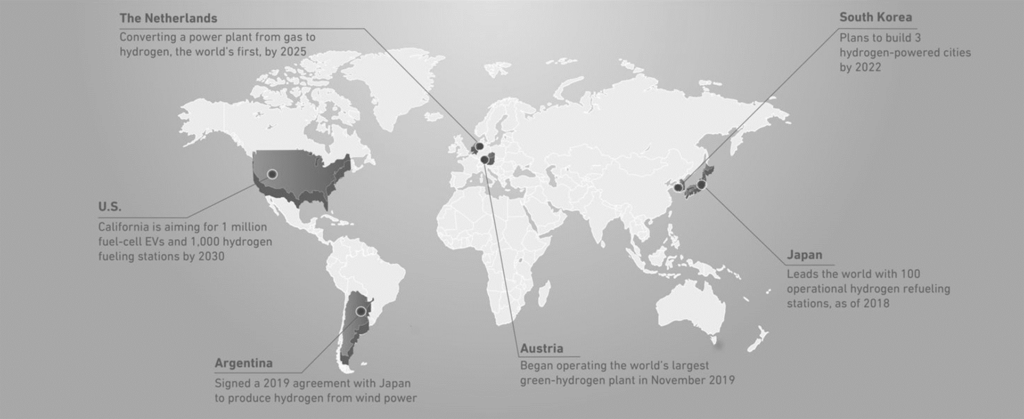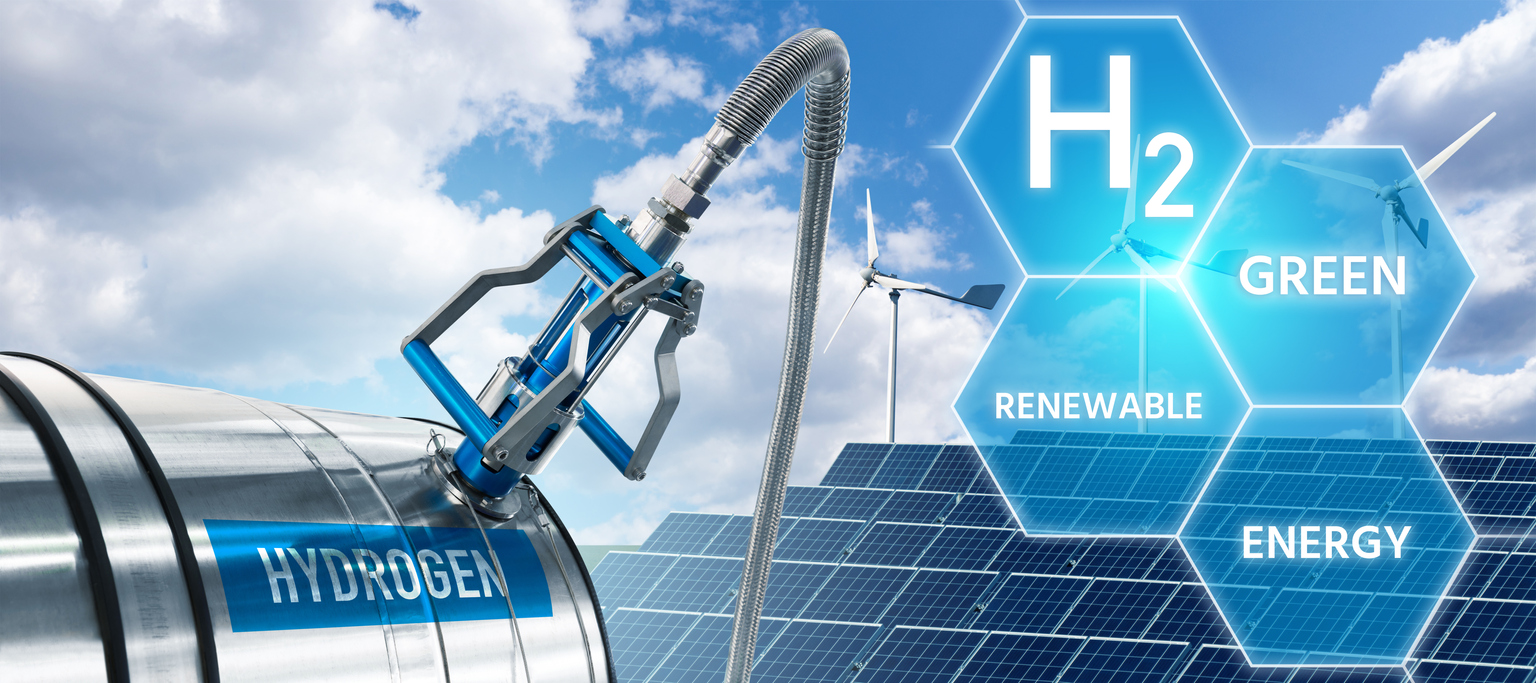Future of Hydrogen in Off-road Vehicles
A greener planet is the need of the hour, and that’s possible by casting out the emission of conventional fuel. Decarbonization is the larger purpose that derives the passion for accustoming vehicles that support alternative fuels like hydrogen. Moreover, sustainable energy also adds to the perks of saving trillions of dollars. Gas is undoubtedly eco-friendly and viable compared to solar energy. And when we think of its applications in off-road vehicles, its vitality rises.
So, pollution emitted by off-road vehicles cannot be ignored on the road to reduce carbon emissions globally. And hydrogen is one of the best alternatives offering a substantial solution.
Pollution caused by off-road vehicles
The pollution caused by on-road vehicles is visible worldwide and available for scrutiny. However, the emission by off-road vehicles is no less, but it’s rushed under the carpet due to negligence. Notably, these vehicles and equipment account for around three-quarters of PM 2.5 (particulate matter) and high NOx (Nitrogen Oxide) emissions, which round up to almost one-quarter of the mobile sources in the United States alone.
Why is hydrogen the future fuel?
According to a report published by IEA, the production cost of Hydrogen will fall by almost 30 percent by 2030. That data gives hope to the industry looking for fuel technology to significantly reduce carbon emissions. Moreover, Japan’s technology hub is committed to bringing it down to one-tenth of the current levels by 2050. Adding to the highs, the nation adopted a national hydrogen strategy in 2017. Interestingly, before COVID-19 hit, the 2020 Olympics were addressed as the Hydrogen Olympics.

Moreover, China, the second-largest economy in the world, introduced hydrogen in its mainstream transportation sector as its auto-industry visionaries emphasized creating a hydrogen society. The biggest testimony to this vision was set by China’s former Science and Technology Minister Wan Gang, who deployed 1500 hydrogen fuel cell vehicles on the streets a few years back. These acts leave no room for doubt about the forward-thinking approach of this nation.
Here are a few reasons that entail why hydrogen is going to play a pivotal role in the world:
1.) Short refueling time with a more extended driving range
One thing that hydrogen fuel cells extend to off-road vehicles is longer travel on minimal energy. Also, refueling time is less. It is noticeable that China used over 800 hydrogen buses during the Beijing Winter Olympics in 2021. Moreover, the organizing committee installed over 30 fueling stations. Interestingly, hydrogen takes 5-10 minutes to refuel, just like petrol and diesel. On the other hand, electric vehicles take hours to charge. So, the feasibility of gas fuel is high here.
2.) Simple to use and store
One thing that supports hydrogen is its easy-to-store properties. Moreover, it can be shipped and utilized anywhere in the world. Even countries with less space are committed to producing lesser carbon emissions. Energy companies are deploying innovative techniques to harness the optimum potential of hydrogen. The Japanese research team created hydrogen capsules in 2016. Hence, consumers can store hydrogen in their batteries for daily activities.
3.) Offers zero emissions
The transportation sector contributes a staggering 20-22 percent of CO2 worldwide. Off-road vehicles produce immense greenhouse gases. Interestingly, hydrogen gas-enabled vehicles emit water and heat as by-products, making the entire phenomenon eco-friendly.
Major Recent Developments In The Hydrogen-based Off-Roading Domain
Extreme H: Off-road vehicles have a long road to tread with hydrogen, and calendars are being prepared to mark the dates. Extreme H, a hydrogen-based off-roading car racing series, is anticipated to debut in or around 2024. So, that’s a hindsight approach. Importantly, organizers are looking at two options. Interestingly, its prototype will be ready in 2023, as per reports. These off-road vehicles will have chassis and powertrains similar to those used during the Extreme E series, but their primary power source will be hydrogen cell fuel. As per organizers, green hydrogen (combining solar energy and water) will offer power to fuel cells
Ineos strikes a deal with Hyundai for hydrogen fuel cells: The future of hydrogen fuel is brighter for off-road vehicles, and the deal inked by the UK’s chemical giant Ineos and South Korea’s stalwart car manufacturer Hyundai proves that. Both companies will be collaborating on Ineos Grenadier, an off-road vehicle. They’ll try to incorporate Hyundai’s cell fuels in the four-wheeler. Moreover, they’ll find a way to supply hydrogen reliably in Europe. Interestingly, one of Britain’s wealthiest people, Sir Jim Ratcliffe, has recognized the potential of hydrogen in off-road vehicles. Thus, he has backed car manufacturing with millions of dollars. Notably, Ineos, owned by Ratcliffe, produces 30,000 tonnes of hydrogen annually, and the supply chain will benefit its existing chemical business. That shows that the upward trajectory backed by billionaires makes hydrogen the future fuel, especially for off-road vehicles.
Lexus unveiled off-road vehicles powered by hydrogen: Lexus started its expedition toward hydrogen-based combustion engines for off-road vehicles, learning about their importance in the future. The Japanese carmaker’s ROV (recreational off-road vehicles) emits almost zero emissions due to hydrogen as fuel. Interestingly, hydrogen is injected directly into the ROV’s combustion chambers. Its one-liter engine works exactly like the traditional fossil-fuel vehicle. The hydrogen is stored in a compressed tank under high pressure.
Land Rover Equips Defender With A Hydrogen Fuel Cell: Land Rover recently unveiled its plans to lead the future of the hydrogen-based off-road segment by empowering its leading model, Defender, with a hydrogen fuel cell system. The SUV is still in its prototype stage, but it will surely lead the way with more modifications soon. The project includes active participation from several other auto giants, including Delta Cosworth, Marelli, and a few others.
Kawasaki: Kawasaki came up with Japan’s first compressed hydrogen trailer with composite cylinders to transport the hydrogen from domestic production sites to distant hydrogen stations. The hydrogen will be safely stored in the trailer, ready to be dispatched in the fuel cell vehicles whenever required.
Volvo: Extending its portfolio of heavy-duty vehicles, not long back, Volvo introduced HX04, its first hydrogen-fueled articulated hauler. It gets recharged with 12 kilograms of hydrogen within 7.5 minutes, yielding an operational range of four hours for the vehicle.
Conclusion
The goal of achieving decarbonization for industries is immense, and off-highway equipment or off-road-vehicle require amendment. The round-the-clock usage of tractors, excavators, trucks, free-loaders, etc., releases vast amounts of carbon into the environment. Thus, hydrogen-enabled machines or engines seem a big solution. Even hydrogen fuel cells are emerging as a massive alternative to power ROVs.
The hydrogen combustion engine in off-road vehicles is a lucrative application because it’s built on a familiar design and architecture. Moreover, the cooling transmission and hydraulic systems are similar to that used in diesel engines, as are the costs and maintenance.
Establishing fueling infrastructure is essential, and hydrogen fueling stations in the US market will increase at a CAGR of 30 percent to 2.67 billion in 2028. Moreover, companies like Ballard Power Systems and Praxair are investing in their research and development. Thus, the future seems secure and bright. Hence, with so many technical and industrial changes and acceptance around off-road vehicles and hydrogen, it can be deduced that their combination is an acceptable alternative.
How Can We Help? (Our Services)
To stay afloat amidst major paradigm shifts, every business needs to identify scalable opportunities through innovation, value creation, and a strategic road map leading to these goals. With over a decade of experience, Stellarix has supported hundreds of clients achieve these goals with a comprehensive 360-degree horizon scan, current & future landscape visualization; and extensive market research.
We can be your partner on the road to strategic growth and a sustainable future. To know more, please refer to our contact details.
Let's Take the Conversation Forward
Reach out to Stellarix experts for tailored solutions to streamline your operations and achieve
measurable business excellence.



